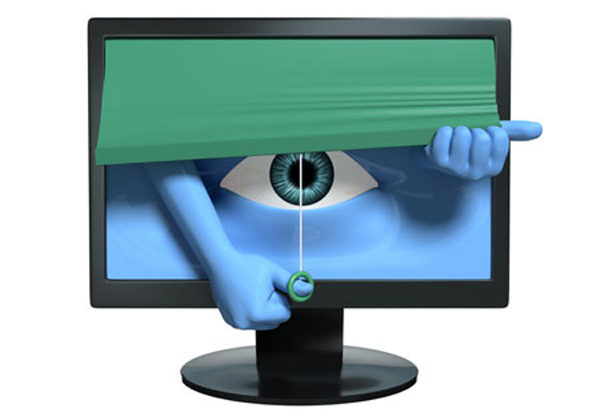12 Downloads That Sneak Unwanted Software Into Your PC
You'd expect no-name software to bundle in adware and other unwanted programs, but many top software companies also distribute them.

There are many programs out there that will take your computer to the next level of functionality for free. Word processors, media players and antivirus software are available online for little or no cost.
But free programs often have a hidden price. Many software creators and distributors bundle their installers and updaters with potentially unwanted programs, or PUPs, which can include adware, dubious PC utilities, browser toolbars and browser hijackers, the last of which change browser homepages and search engines without the user's permission.
MORE: Best Antivirus Software 2014
PUPs are easy to miss during the free-software installation process, can sometimes be harmful and are almost always hard to remove. They're often designed to mislead you into consenting to their installation, either by emphasizing the "software+ PUP" download link over the "just software" one on a website, or by pre-checking the "I consent to this software" box in an installation tool.
Bundling PUPs into other pieces of software may be unethical, but it's not illegal. The PUPs' creators pay other software developers to distribute their products, and it's an easy way for makers of free software to earn money. As a result, there are a lot of well-known websites and free-software makers, many of which are top brands, that try to sneak PUPs onto your PC (or, sometimes, Mac).
Other well-known companies are sources of PUPs themselves, creating toolbars, browser hijackers or pointless security scanners that are bundled with other companies' software.
If you do find PUPs appearing on your PC, there are plenty of options for removing them. AdwCleaner, CCleaner and Malwarebytes Anti-Malware will remove both browser hijackers and stand-alone PUPs, and it's not difficult to reset the Apple Safari, Google Chrome, Microsoft Internet Explorer and Mozilla Firefox Web browsers to their default settings.
Sign up to get the BEST of Tom's Guide direct to your inbox.
Get instant access to breaking news, the hottest reviews, great deals and helpful tips.
Here some well-known downloads that may have been giving you PUPs:
- Adobe's free software has been bundling PUPs with its installers for years. The most recent updates for Adobe Flash Player and Adobe Shockwave Player, for example, come preloaded with McAfee Security Scan and Norton Security Scan, respectively.
- Some free antivirus products may try to install additional software, including browser hijackers and bogus PC-cleaning utilities. For example, Avast Free Antivirus will try and install Dropbox or the Amazon toolbar, and Ad-Aware Free Antivirus+ will try and install the Ad-Aware Security Toolbar and change your search provider.
- We can't blame the browser makers, but some browser add-ons, apps and extensions for Google Chrome, Microsoft Internet Explorer and Mozilla Firefox add PUPs without your knowledge. Last year, the Google Chrome extension "Post to Feedly" used its first update to insert adware, causing Google to pull the extension from the Chrome app store.
- File-sharing software often offers plenty of PUPs upon installation. When we installed the BitTorrent torrent client, it attempted to download a full album we didn't ask for, as well as Skype. The BitTorrent official site also prominently displayed a link to the RegCleanPro bogus PC utility.
- Google Earth will try to install the Google Chrome Web browser and set Google as your home page.
- McAfee SiteAdvisor is a common website safety tool. However, it will try to install another McAfee product, the McAfee Secure Searchbar, in your Web browser.
- Java platform software, made by Oracle and widely used to run games, Web applications and other software, will attempt to install the Ask toolbar and browser hijacker (made by OK Cupid and Match.com owner IAC).
- Skype, now owned by Microsoft, is a pretty big transgressor. It will try to change your default browser to Internet Explorer and your default search engine to Bing during the PC installation process.
- 5 Essential iPhone Security Tips
- How to Remove PC Optimizer Pro
- How the Internet of Things Could Kill You
Follow us @tomsguide, on Facebook and on Google+.
-
de5_Roy google chrome is a p.u.p. as well. ccleaner and piriform's other utilities try to install google chrome.Reply -
pjmelect The number of free software utilities that try and install conduit is annoying. Conduit can stop Internet explorer from working. I have lost count of the number of times that I have removed this particular piece of software from customers computers.Reply -
virtualban My way of defending, partially: installing the free software on to a virtual machine, then take the extracted files and see if they work (mostly yes) on to the host machine or another virtual machine, and if they try to sneak in stuff. It is a pain when the program tries for updates later, but not too much.Reply
I wish the OS was built in such a way that the program will reach resources only to basic show itself and basic folder permissions, without needing registry entries, files present in special system folders, startup entries and whatnot. That way, even if a bundle installs 2 programs, I can just delete the other program (simple delete), and if the other program is somehow 'needed', maybe I will re-evaluate if I need the original program in the first place.

